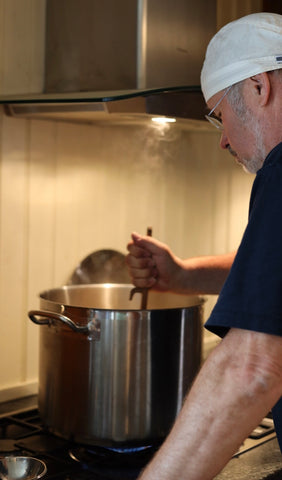Freedom on the cans: The battle for the right to freely name marmalade

Bringing out and naming a marmalade can be an acrobatic dance with words, where each syllable should arouse appetite and curiosity. But when it comes to the creativity we can harness to name our creations, there are unexpected limitations that stifle creative souls like me. As a proud maker of marmalades, I have been affected by the authorities' old-fashioned legislation and their sometimes absurd naming rules. In this text, I want to express my support for the freedom to name marmalades exactly as we want - because quality, taste and durability should be above petty jurisprudence.
Culinary creativity
For many, the creation of marmalade has gone from being a household routine to a form of art. Every selection of fruit and every measure of spice is a reflection of the creator's vision and business for culinary ingenuity.
The meaning of names of marmalades
Imagine a marmalade market, where each jar carries a story, a soul, shaped by its creator. The name is the gateway to the realm of taste, an invitation to explore something new and unknown. Unique names are not just a marketing technique, but a way for us to communicate our passion for sustainable and natural ingredients.
Challenges and rules
But the rules that prohibit me from calling my Ginger Marmalade just that, due to a percentage technicality in the content, are nothing more than a stranglehold on creativity. What does it matter if my Licorice Jam gives an enchanting taste journey if I don't get to convey it through the name? And my classic, Red Onion Marmalade, whose name is now banished to oblivion after ten years in service - where is the logic, where is the freedom of taste?
Support freedom around marmalade names
We should defend the right to choose names that inspire, inform and entice tasting. Just as organic and natural ingredients are prioritized for a sustainable future, names that reflect taste and quality should feature prominently in our hearts and on our cans.
My personal reflection
I have fought against the authorities' pedantic legal requirements and seen my culinary creativity limited by rules that do not benefit either producer or consumer. When I created my Gin & Tonic jam, I aimed to give adult candy lovers a gastronomic experience as sophisticated as their taste buds. But instead I was drawn into a bureaucratic tango where the dance steps were pre-recorded and creativity was forbidden.
Final words - Up for battle!
It is a regulatory conundrum that, in today's year 2024, old-fashioned legislation should be allowed to inhibit culinary creativity. Let's stand up for culinary creativity and the right to name our marmalades with the same freedom we use when creating them. Because I think we can all agree on one simple truth: a marmalade's name should be as irresistible as its taste.
So the next time you take a spoonful of your favorite marmalade, think of the freedom and labor behind every caressing name that graces our kitchen counters and breakfast tables. And remember, behind every "forbidden" name is a saga of natural ingredients, priority taste and a passion for environmental responsibility that should not be silenced.
